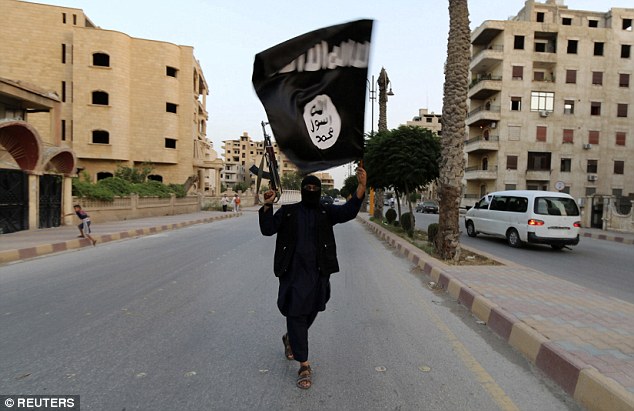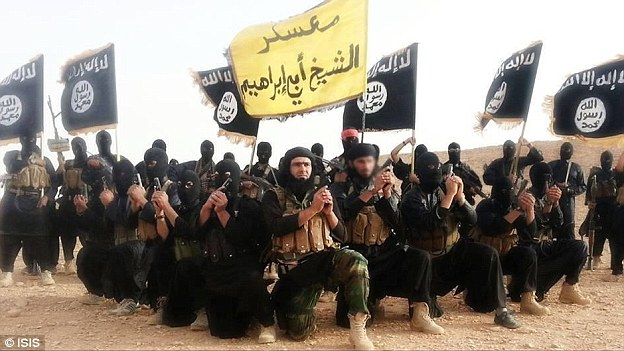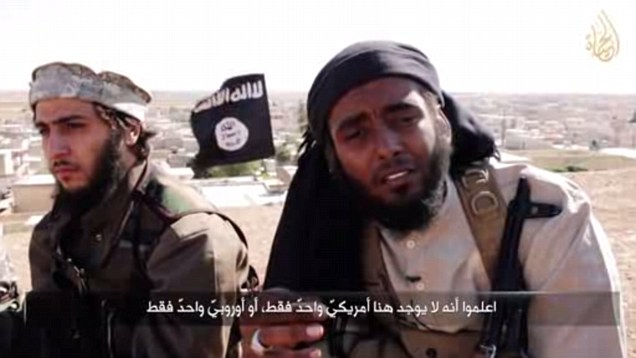Boy, 17, crucified for three days after ISIS militants accuse him of being paid to take photographs of the terror group's HQ
- Images shows the unnamed teenager being crucified in central Raqqa
- Sign around his neck accuses him of apostasy - abandoning his religion
- Says he had been paid 500 Turkish lira for photographs of military bases
- Image shared on Twitter by group of brave anti-ISIS activists called 'Raqqa is Being Slaughtered Silently' who operate inside group's de facto capital
Sickening: Images purportedly taken in the central square of the extremists' de facto capital Raqqa show the battered and bloodstained body of an unnamed 17-year-old boy strapped to a cross
The image of the murdered teenager appeared on a social media account of an activist group known as Raqqa is Being Slaughtered Silently.
The group is made up of a handful of incredibly brave individuals who oppose ISIS and - despite the city being the group's de facto, the centre of its leadership and full of bloodthirsty religious police - attempt to document the violence the terrorists group has brought to their hometown.
The image has been circulated on Twitter both by anti-ISIS campaigners and by ISIS supporters, who sickeningly trumpet it as a positive example of the group's brutal interpretation of Islam.
Charlie Winter, programs officer at counter-extremism think tank the Quilliam Foundation, said crucifixion is a prescribed punishment meted out by Isis for specific crimes.
'Crucifixion has been used many times before – it's an age-old punishment dealt out to people who have committed treason,' he told The Independent.

Horror: Raqqa's central square has been bathed in blood since the terror group fully seized control of the city earlier in the year
The Islamic State's use of crucifixion as a punishment stems from its fundamentalist interpretation of Verse 33 of the fifth book of the Koran.
The verse reads: 'Indeed, the penalty for those who wage war against Allah and His Messenger and strive upon earth [to cause] corruption is none but that they be killed or crucified or that their hands and feet be cut off from opposite sides or that they be exiled from the land.'
'That is for them a disgrace in this world; and for them in the Hereafter is a great punishment.'
Despite this, ISIS chooses to ignore the next passage which emphasises forgiveness and removes the imperative to use such a punishment, saying: 'Except for those who return [repenting] before you apprehend them. And know that Allah is Forgiving and Merciful.'
Raqqa's central square has been bathed in blood since the terror group fully seized control of the city earlier in the year.
Severed heads are regularly displayed impaled on spikes surrounding a small patch of grass in the square, and there are a number of wooden and metal crosses standing ready for the next execution.

